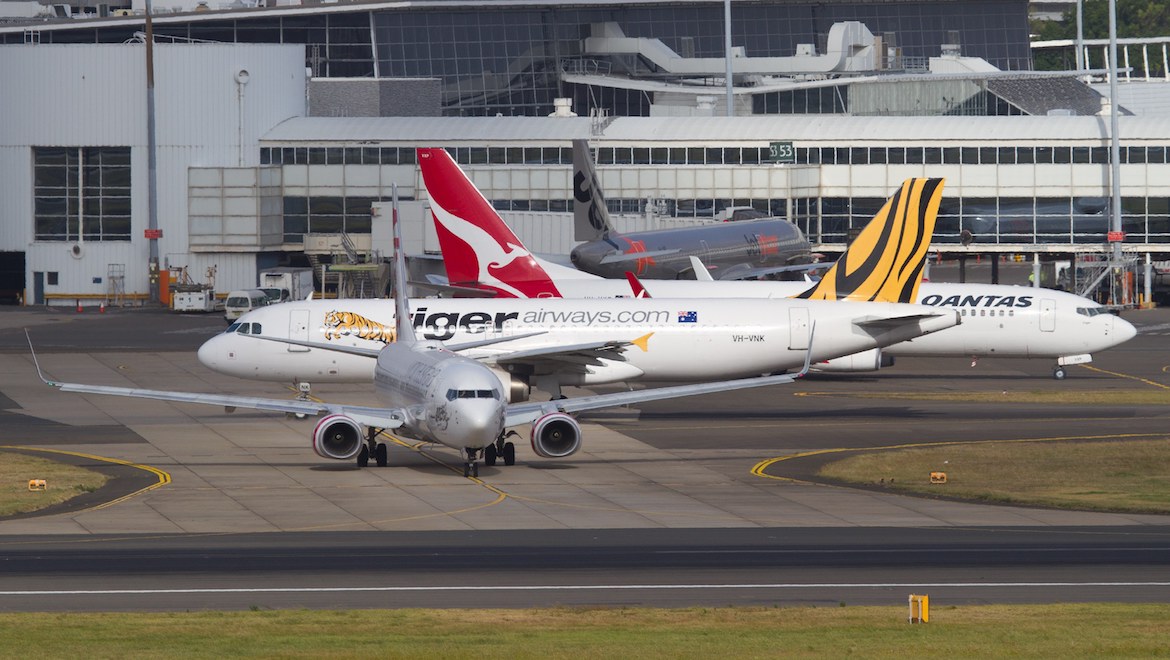
Sydney Airport has reported a third consecutive month of declining domestic passenger numbers amid ongoing weakness in the local market.
The airport’s monthly traffic statistics, published on Friday, showed there were 2.3 million domestic travellers at Kingsford Smith in August, down 1.3 per cent from the prior corresponding period.
The August figures followed an 0.7 per cent decline in July and 1.6 per cent drop in June.
Further, the number of domestic passengers at Sydney Airport have fallen six of the past seven months and were down 1.3 per cent so far in calendar 2019 compared with the prior corresponding period.
On a more positive note, Sydney Airport reported international passengers rose two per cent to 1.37 million for August, returning to positive territory following a 2.2 per cent fall in July.
International passengers have risen 1.4 per cent in the eight months to August, compared with the prior corresponding period.
In total, Sydney Airport handled 3.67 million passengers in August, down 0.1 per cent from a year ago.
“Our international performance helped offset the continued weakness in domestic passenger growth,” Sydney Airport chief executive Geoff Culbert said in a statement.
“Arrivals from the USA continue to be a highlight with double-digit growth year to date – this reflects good load factors on US routes and the continued attractiveness of Sydney to US travellers.
“It was another strong month for passengers from India, which were up 14.5 per cent on August 2018, and 8.1 per cent year to date.
“We believe there is plenty of upside to come from the Indian market, with currently only a single direct service catering to a population of more than 1.3 billion.”
The weakness in the domestic market was highlighted by Australia’s major airline groups in their latest financial results.
Qantas chief executive Alan Joyce said at the airline group’s 2018/19 full year results the corporate sector was flat, while the resources market was continuing to rebound. It was a similar story in the leisure segments of the domestic market.
“We are still seeing huge growth in the resources sector, particularly in Western Australia, but it is being offset by declines in financial and declines in telecommunications,” Joyce said.
“Premium leisure is actually still very strong and robust but price-sensitive leisure we’ve seen that being weak recently.”
Virgin Australia chief executive Paul Scurrah said at the company’s 2018/19 full year results it was a tough economic climate with high fuel, a low Australian dollar, and subdued trading conditions.
And Regional Express has forecast a drop in profit in the current year as it battled what executive chairman Lim Kim Hai described as a harsh operating environment, as ongoing trade tensions between China and the United States hit economic growth in Australia and around the world.
“Rex will not be spared the full brunt of the global headwinds in the new financial year, and our profits could be eroded by 15-20 per cent as things stand,” Lim said at the airline group’s 2018/19 full year results.




